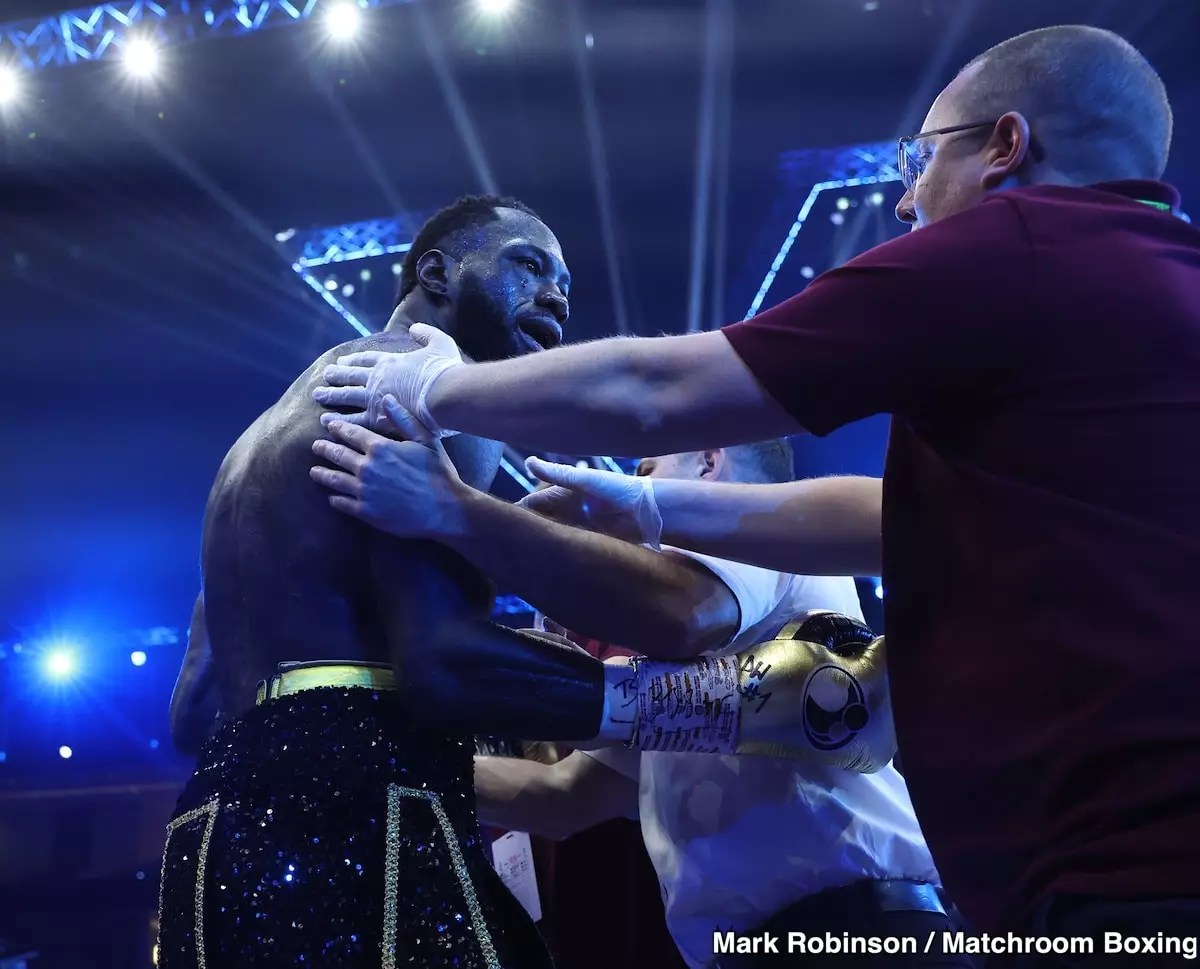The inexorable rise and fall of Deontay Wilder is a tragic story that echoes through the annals of boxing. Once heralded as a towering figure in the heavyweight division, his recent trajectory resembles more of a slow spiral into mediocrity than a compelling comeback narrative. With talks swirling around his next bout against Tyrrell Herndon in Wichita, Kansas, on June 27, it’s difficult not to feel a profound sense of disappointment regarding Wilder’s career prospects. What should be a riveting return seems instead like a desperate grasp at relevance amidst palpable skepticism.
Wilder’s record of 43 wins, 4 losses, and 1 draw comes with the remarkable statistic of 42 knockouts. This figures alone would typically suggest an undying aura of menace. However, the past year has been an unflattering illustration of decline, punctuated by a mere single victory over his last five contests. His unfortunate defeats by fellow competitors Joseph Parker and Zhilei Zhang were not just losses; they were marked by sheer futility, leaving casual fans and boxing purists alike questioning his future in the sport.
Questionable Matchmaking: The Opposition’s Weakness
Engaging Tyrrell Herndon—a 37-year-old fighter with a mediocre record that includes five losses—raises eyebrows. Herndon, whose most notable claim to fame may very well be his knack for losing decisively, barely squeaked by in his last bout. If this is the opponents Wilder has to face for a comeback, one can’t help but wonder if the mismatch signals that Wilder’s management has conceded to a reality of diminished expectations.
It is disheartening when promoters, in their mission to revive a fading star, pitch such a lackluster match as a pathway to “legacy reloaded.” Joshua Chasse’s optimism feels misplaced and overly ambitious. Claiming Wilder is “on the road back” to heavyweight glory while pitting him against an established journeyman like Herndon only serves to expose the precarious nature of his current situation. Is Wilder’s team attempting to fluff a deflating narrative by showcasing victories against lesser opponents? It’s a concerning ascription deserving of scrutiny.
The Thorny Legacy of a Once Mighty Warrior
Wilder’s past successes, especially the electrifying trilogy against Tyson Fury, now seem paradoxically more damaging than uplifting. While he undeniably etched his name in history by knocking Fury down on multiple occasions, suffocating losses in that same rivalry stripped him of the dominant stature he once held in the boxing world. He is no longer viewed as a fearsome heavyweight but rather as an aging fighter struggling to reclaim past glory while enduring the inevitable rigors of decline.
The “fear factor,” once a valuable weapon in Wilder’s arsenal, appears defunct. The aura that surrounded him has faded significantly, and with it, the hopes of many loyal fans. Watching him bob and weave through the fallout of his recent fights begs the question: what does a “comeback” even mean? Does it imply grit and rebounding from hardship, or is it a mere guise cloaked in hopeful rhetoric?
The Reality: A Diminishing Return
Should we expect anything compelling on June 27? There’s a strong possibility Wilder may score a quick knockout against Herndon, but will that shed light on anything of substance regarding his future? Not in the slightest; there’s little merit in judging a fighter’s capability against an opponent firmly ensconced in the ranks of journeymen. This matchup is less about reclaiming the heavyweight throne than it is about prolonging Wilder’s career, perhaps even serving as a chance to fill his bank account.
In the end, this bout does not scream “comeback.” Rather, it reads as a potential diversion, a method of postponing an inevitable decline. Power may still reside within Wilder, but the sport of boxing rarely bends to a mere display of strength without the tactical and mental fortitude to pair with it. For anyone truly invested in Wilder’s journey, it might be time to face an uncomfortable truth: he is not the fighter he once was, and clinging to past achievements will only act as a haunting reminder of what was lost.


Leave a Reply